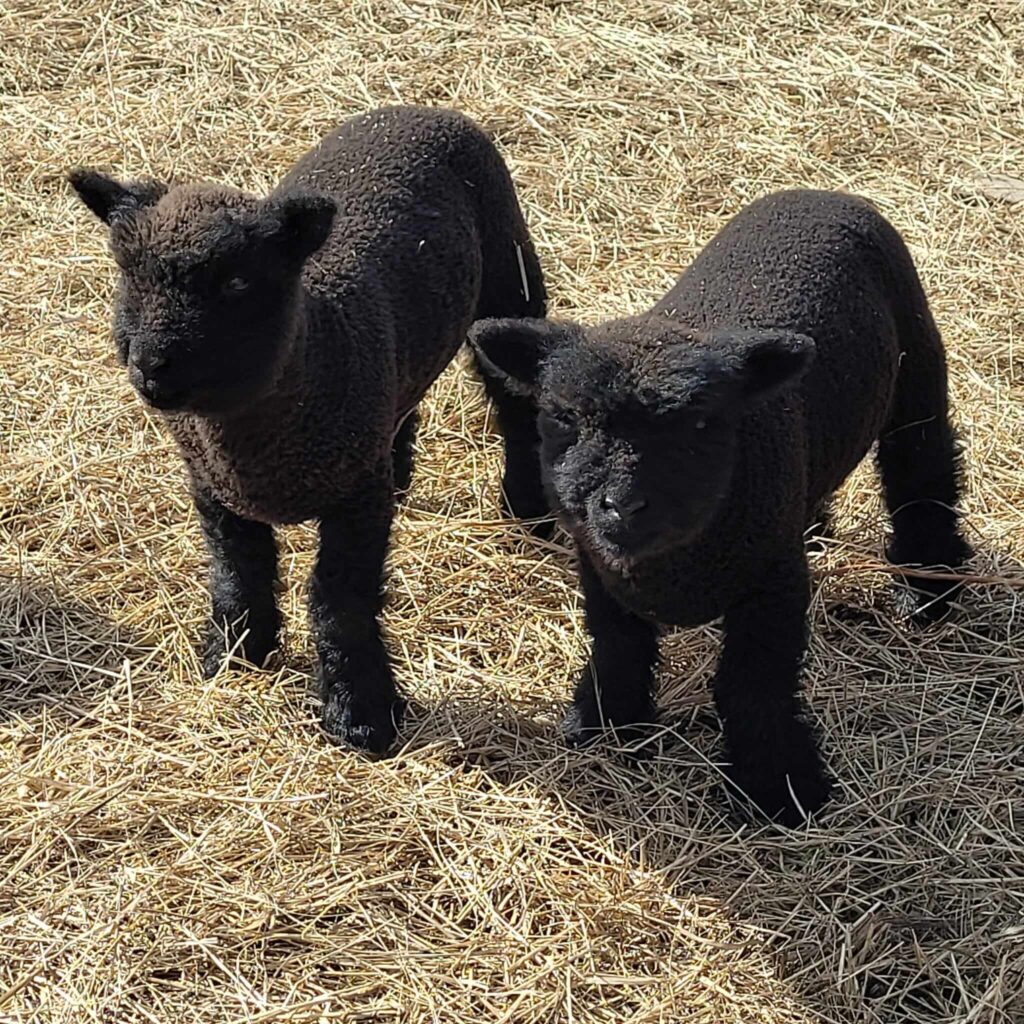Cute babydoll sheep are a delightful breed known for their adorable appearance and gentle disposition. Originating from England, these pint-sized sheep have captured the hearts of people worldwide with their charming characteristics. In this article, we’ll explore everything you need to know about these endearing creatures, from their history and physical traits to caring for them as pets or livestock.
What are Cute Babydoll Sheep?
Cute babydoll sheep, also known as Southdown sheep, are a miniature breed prized for their petite stature and fluffy appearance. They belong to the category of domestic sheep, specifically the Southdown breed, which was developed in the 18th century in Sussex, England. Unlike their larger counterparts, babydoll sheep typically stand at around 18 to 24 inches tall at the shoulder, making them perfect for small farms or as household pets.
Origin of Cute Babydoll Sheep
The history of cute babydoll sheep dates back to the 18th century when they were first bred in Sussex, England. The breed was initially developed for meat production due to its tender and flavorful meat. Over time, their adorable appearance and docile nature led to an increase in their popularity as pets and show animals.
Physical Characteristics
Despite their diminutive size, cute babydoll sheep possess distinct physical characteristics that set them apart. They have round, compact bodies covered in dense, woolly fleece that comes in various colors such as white, gray, and brown. Their faces are adorned with expressive eyes and small, pointed ears, giving them an irresistibly charming look.
Personality Traits
One of the most endearing qualities of cute babydoll sheep is their friendly and gentle nature. They are known for their docile temperament, making them ideal companions for both adults and children alike. Babydoll sheep are sociable animals that enjoy human interaction, often forming strong bonds with their owners.
Caring for Cute Babydoll Sheep
Caring for cute babydoll sheep requires attention to their specific needs to ensure their health and well-being. Proper nutrition, adequate shelter, and regular veterinary care are essential aspects of their care regimen.
Feeding Requirements
Babydoll sheep have relatively modest dietary requirements compared to larger breeds. They thrive on a diet primarily consisting of high-quality hay, supplemented with grains and fresh vegetables. It’s important to provide access to clean water at all times and monitor their food intake to prevent overeating.
Housing Needs
When it comes to housing cute babydoll sheep, simplicity is key. A sturdy shelter with ample ventilation and protection from the elements is essential, especially during inclement weather. Additionally, providing a fenced outdoor area for grazing and exercise is beneficial for their overall health and happiness.
Health Considerations
Like all animals, cute babydoll sheep are susceptible to certain health issues that require vigilant monitoring. Regular vaccinations, parasite control, and routine health checks by a qualified veterinarian are crucial for preventing and managing potential health problems.

Breeding and Reproduction
Breeding cute babydoll sheep requires careful consideration to ensure healthy offspring and maintain desirable traits. It’s essential to select breeding stock with strong genetic backgrounds and compatible traits to produce healthy lambs with the desired characteristics.
Common Misconceptions
Despite their popularity, there are some common misconceptions about cute babydoll sheep that deserve clarification. One such misconception is that they require extensive grooming due to their woolly coats. In reality, babydoll sheep have manageable fleece that requires minimal maintenance compared to other breeds.
Why Choose Cute Babydoll Sheep as Pets?
There are numerous reasons why cute babydoll sheep make excellent pets for both novice and experienced owners. Their small size makes them suitable for small properties or urban environments, and their friendly disposition makes them enjoyable companions for individuals of all ages.
Raising Cute Babydoll Sheep as Livestock
In addition to being beloved pets, cute babydoll sheep are also valued for their contributions to agriculture. They excel as grazers and can be raised for their wool, meat, or as breeding stock for other sheep breeds. Their compact size and gentle nature make them easy to handle and manage, making them an ideal choice for small-scale farming operations.
Legal Considerations
Before acquiring cute babydoll sheep, it’s important to familiarize yourself with any legal regulations or requirements governing their ownership. Depending on your location, there may be zoning ordinances, licensing requirements, or other regulations that apply to keeping sheep as pets or livestock.
Conclusion
In conclusion, cute babydoll sheep are captivating creatures that have endeared themselves to people around the world with their adorable appearance and amiable personalities. Whether kept as pets or raised as livestock, these pint-sized sheep bring joy and companionship to those who have the pleasure of caring for them.
FAQs
- Are babydoll sheep good pets for families with children?
Absolutely! Babydoll sheep are known for their gentle nature and make wonderful companions for children of all ages. - Do babydoll sheep require special grooming?
Not particularly. While they do have woolly coats, babydoll sheep’s fleece is relatively low-maintenance compared to other breeds. - Can babydoll sheep be trained?
Yes, babydoll sheep are intelligent animals that can be trained with patience and positive reinforcement. - What are the space requirements for keeping babydoll sheep?
Babydoll sheep can thrive in smaller spaces, making them suitable for both rural and urban environments. However, they still require adequate room for grazing and exercise. - Do babydoll sheep need companionship?
While babydoll sheep are sociable animals that enjoy human interaction, they can also benefit from the company of other sheep.